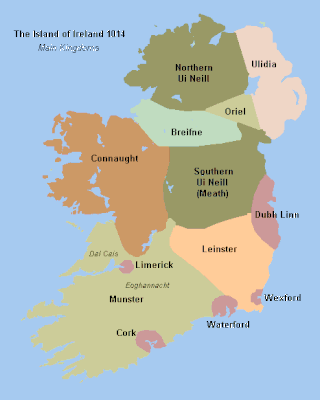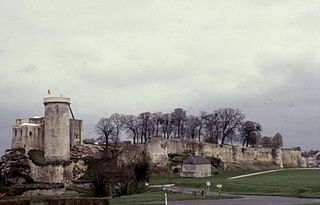Related Research Articles
Weregild, also known as man price, was a precept in some archaic legal codes whereby a monetary value was established for a person's life, to be paid as a fine or as compensatory damages to the person's family if that person was killed or injured by another.

Harold Godwinson, also called Harold II, was the last crowned Anglo-Saxon English king. Harold reigned from 6 January 1066 until his death at the Battle of Hastings, fighting the Norman invaders led by William the Conqueror during the Norman conquest of England. His death marked the end of Anglo-Saxon rule over England.

Edgar Ætheling or Edgar II was the last male member of the royal house of Cerdic of Wessex. He was elected King of England by the Witenagemot in 1066, but never crowned.
Robert Kett was the leader of Kett's Rebellion.
Gerrard Winstanley was an English Protestant religious reformer, political philosopher, and activist during the period of the Commonwealth of England. Winstanley was the leader and one of the founders of the English group known as the True Levellers or Diggers. The group occupied formerly common land that had been privatised by enclosures and dug them over, pulling down hedges and filling in ditches, to plant crops. True Levellers was the name they used to describe themselves, whereas the term Diggers was coined by contemporaries.
The Charter of Liberties, also called the Coronation Charter, or Statutes of the Realm, was a written proclamation by Henry I of England, issued upon his accession to the throne in 1100. It sought to bind the King to certain laws regarding the treatment of nobles, church officials, and individuals. The nineteenth-century historians Frederick Maitland and Frederick Pollock considered it a landmark document in English legal history and a forerunner of Magna Carta.

The Blue Laws of the Colony of Connecticut are an invented set of harsh statutes governing conduct in the Puritan colony, listed in a history of Connecticut that was published in 1781 in London by the Reverend Samuel Peters, an Anglican who had been forced to leave America. Peters' book popularized the term "blue laws", referring to laws restricting activities on Sunday.
The Revolt of the Earls in 1075 was a rebellion of three earls against William I of England. It was the last serious act of resistance against William in the Norman Conquest.
Seisin denotes the legal possession of a feudal fiefdom or fee, that is to say an estate in land. It was used in the form of "the son and heir of X has obtained seisin of his inheritance", and thus is effectively a term concerned with conveyancing in the feudal era. The person holding such estate is said to be "seized of it", a phrase which commonly appears in inquisitions post mortem. The monarch alone "held" all the land of England by his allodial right and all his subjects were merely his tenants under various contracts of feudal tenure.

Quia Emptores is a statute passed by the Parliament of England in 1290 during the reign of Edward I that prevented tenants from alienating their lands to others by subinfeudation, instead requiring all tenants who wished to alienate their land to do so by substitution. The statute, along with its companion statute Quo Warranto also passed in 1290, was intended to remedy land ownership disputes and consequent financial difficulties that had resulted from the decline of the traditional feudal system in England during the High Middle Ages. The name Quia Emptores derives from the first two words of the statute in its original mediaeval Latin, which can be translated as "because the buyers". Its long title is A Statute of our Lord The King, concerning the Selling and Buying of Land. It is also cited as the Statute of Westminster III, one of many English and British statutes with that title.
An amercement is a financial penalty in English law, common during the Middle Ages, imposed either by the court or by peers. The noun "amercement" lately derives from the verb to amerce, thus: the king amerces his subject, who offended some law. The term is of Anglo-Norman origin, and literally means "being at the mercy of": a-merce-ment.
Englishry or, in Old French, Englescherie, is a legal name given, in medieval England, for the status of a person as an Englishman.
The Treaty of Alfred and Guthrum is a 9th-century peace agreement between Alfred of Wessex and Guthrum, the Viking ruler of East Anglia. It sets out the boundaries between Alfred and Guthrum's territories as well as agreements on peaceful trade, and the weregild value of its people.

The Treaty of Windsor (1175) was a territorial agreement made during the time of the Norman invasion of Ireland. It was signed in Windsor, Berkshire by King Henry II of England and the Ard Rí or High King of Ireland, Ruaidrí Ua Conchobair.
The Assize of Arms of 1181 was a proclamation of King Henry II of England concerning the obligation of all freemen of England to possess and bear arms in the service of king and realm and to swear allegiance to the king, on pain of "vengeance, not merely on their lands or chattels, but on their limbs". The assize stipulated precisely the military equipment that each man should have according to his rank and wealth. The assize effectively revived the old Anglo‐Saxon fyrd duty. The Assize established restrictions on weapon possession by Jews, terms of inheritance, and prohibition of exports of arms, ships and timber.
Every knight was forced to arm himself with a coat of mail, and shield and lance; every freeholder with lance and hauberk, every burgess and poorer freeman with lance and an iron helmet. This universal levy of the armed nation was wholly at the disposal of the king for defense. ... By his Assize of Arms Henry restored the Ancient Anglo-Saxon Militia System, and supplied the requisite counterbalance to the military power of the great feudatories, which, notwithstanding the temptation to avoid service by payment of scutage, they were still able and too willing to maintain.
In all these measures we may trace one main object, the strengthening of the Royal power, and one main means, or directing principle—the doing so by increasing the safety and security of the people. Whatever was done to help the people, served to reduce the power of the great feudal baronage, to disarm their forces, to abolish their jurisdictions, to diminish their chances of tyranny.

The Treaty of Falaise was a forced written agreement made in December 1174 between the captive William I, King of Scots, and Henry II, King of England.

The Charter of the Forest of 1217 is a charter that re-established for free men rights of access to the royal forest that had been eroded by King William the Conqueror and his heirs. Many of its provisions were in force for centuries afterwards. It was originally sealed in England by the young King Henry III, acting under the regency of William Marshal, 1st Earl of Pembroke.

The Code of Ur-Nammu is the oldest known law code surviving today. It is from Mesopotamia and is written on tablets, in the Sumerian language c. 2100–2050 BCE.
Refusing to assist a police officer, peace officer or other law enforcement officer is an offence in various jurisdictions around the world. Some jurisdictions use the terminology '"refusing to aid a police officer" or "failure to aid a police officer".
References
- ↑ Peter Kellner (25 January 2011). Democracy: 1,000 Years in Pursuit of British Liberty. Mainstream Publishing. p. 51. ISBN 978-1-907195-85-3.
- ↑ David Charles Douglas (1996). English Historical Documents, 1042-1189. Psychology Press. p. 423. ISBN 978-0-415-14367-7.
- 1 2 3 4 5 6 7 8 9 10 11 "Internet History Sourcebooks Project".